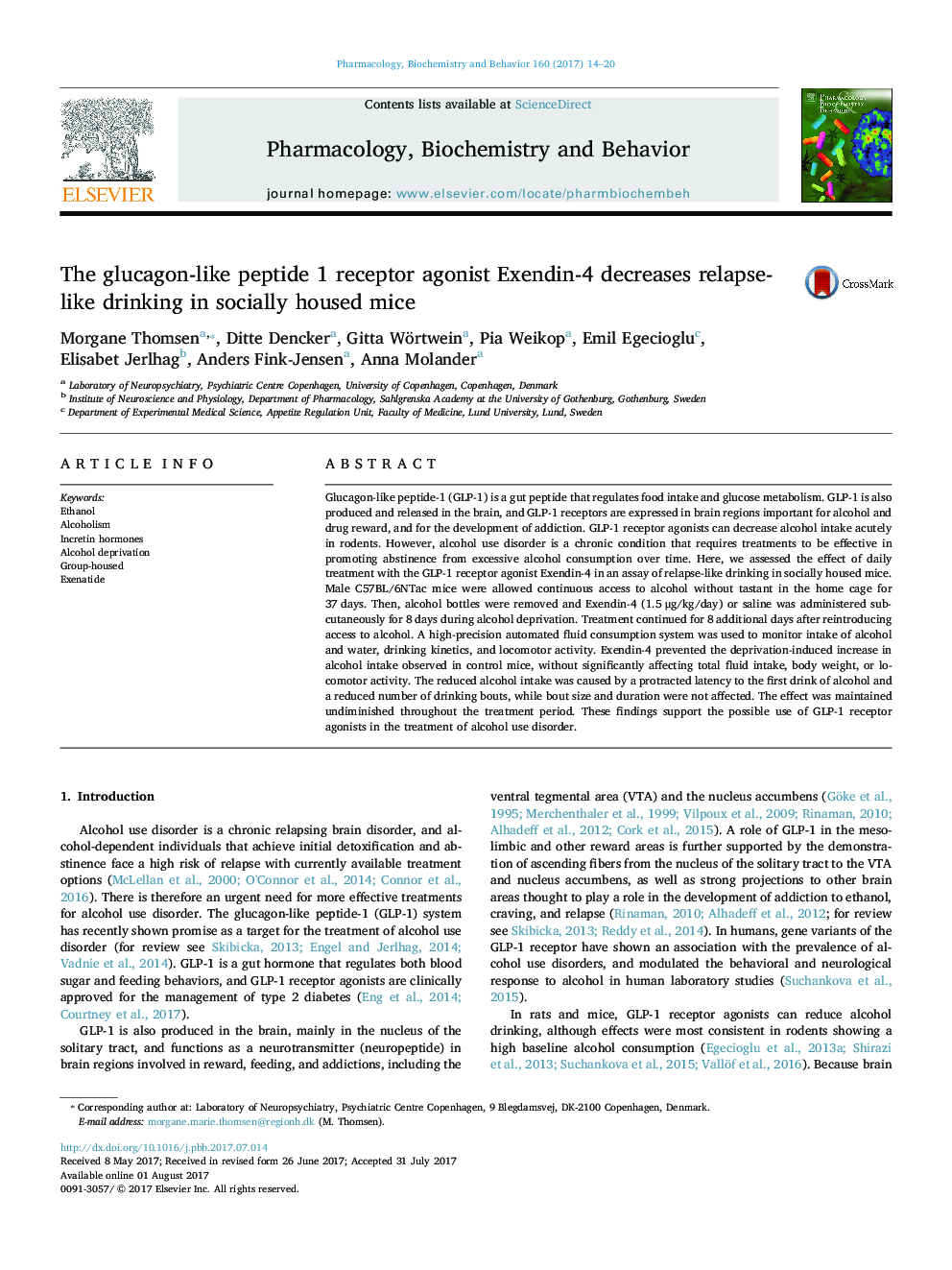| کد مقاله | کد نشریه | سال انتشار | مقاله انگلیسی | نسخه تمام متن |
|---|---|---|---|---|
| 5515147 | 1541827 | 2017 | 7 صفحه PDF | دانلود رایگان |

- Repeated daily Exendin-4 prevented deprivation-induced increase in alcohol drinking.
- Exendin-4 increased latency to first alcohol drink and decrease drink frequency, not size.
- Treatment did not affect total fluid intake, body weight, or locomotor activity.
Glucagon-like peptide-1 (GLP-1) is a gut peptide that regulates food intake and glucose metabolism. GLP-1 is also produced and released in the brain, and GLP-1 receptors are expressed in brain regions important for alcohol and drug reward, and for the development of addiction. GLP-1 receptor agonists can decrease alcohol intake acutely in rodents. However, alcohol use disorder is a chronic condition that requires treatments to be effective in promoting abstinence from excessive alcohol consumption over time. Here, we assessed the effect of daily treatment with the GLP-1 receptor agonist Exendin-4 in an assay of relapse-like drinking in socially housed mice. Male C57BL/6NTac mice were allowed continuous access to alcohol without tastant in the home cage for 37 days. Then, alcohol bottles were removed and Exendin-4 (1.5 μg/kg/day) or saline was administered subcutaneously for 8 days during alcohol deprivation. Treatment continued for 8 additional days after reintroducing access to alcohol. A high-precision automated fluid consumption system was used to monitor intake of alcohol and water, drinking kinetics, and locomotor activity. Exendin-4 prevented the deprivation-induced increase in alcohol intake observed in control mice, without significantly affecting total fluid intake, body weight, or locomotor activity. The reduced alcohol intake was caused by a protracted latency to the first drink of alcohol and a reduced number of drinking bouts, while bout size and duration were not affected. The effect was maintained undiminished throughout the treatment period. These findings support the possible use of GLP-1 receptor agonists in the treatment of alcohol use disorder.
Journal: Pharmacology Biochemistry and Behavior - Volume 160, September 2017, Pages 14-20